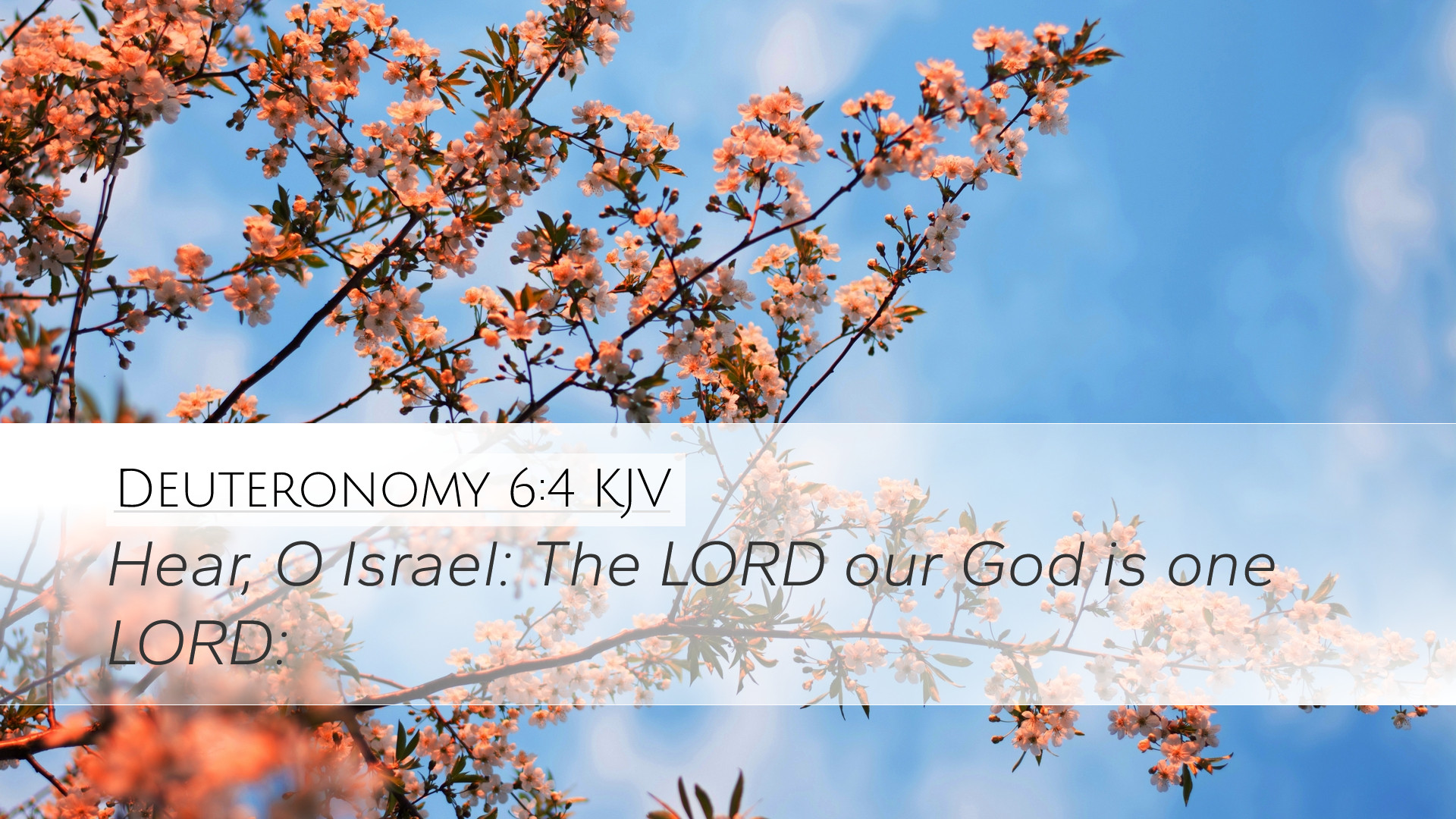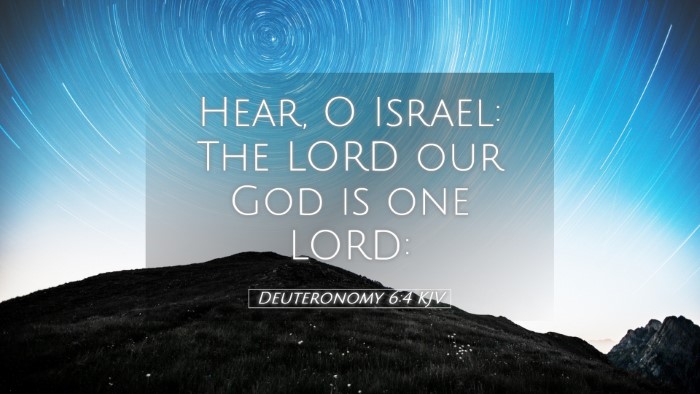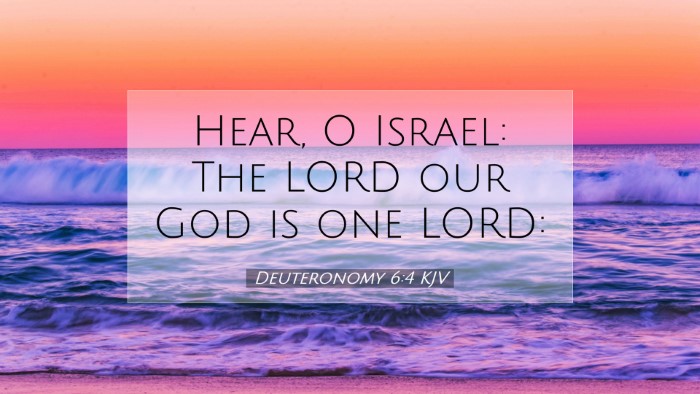Commentary on Deuteronomy 6:4
Verse: "Hear, O Israel: The LORD our God, the LORD is one!"
Introduction
This verse, known as the Shema, serves as a foundational tenet of Jewish faith and highlights the oneness of God. It is a declaration of faith that asserts monotheism in the midst of a polytheistic world. The significance of this verse reverberates through both Jewish and Christian traditions, providing a lens through which to understand the nature of God and our relationship with Him.
The Context of the Shema
The verse appears within a larger discourse where Moses addresses the people of Israel before they enter the Promised Land. This address is a reminder of their covenantal relationship with God and the laws that govern their conduct.
Historical Context
As Israel stands at the threshold of a new land, they are called to remember the principles that define their identity. This context is crucial for understanding the weight of the command to "hear." To hear in this sense goes beyond mere auditory perception; it encompasses obedience and comprehension of God's commands.
Insights from Public Domain Commentaries
Matthew Henry's Commentary
Matthew Henry emphasizes the importance of hearing and understanding the divine call. He notes, "The Lord our God is one Lord," reflecting the uniqueness and supremacy of God. This call to hear is not just for individual understanding but for collective acknowledgment among the people of Israel.
- The Call to Unity: Henry articulates that this verse speaks to the unity of God and the need for Israel to respond in unified worship and service.
- Implication for Life: He asserts that a proper understanding of God's oneness should shape the lives of believers, influencing their worship, ethics, and communal identity.
Albert Barnes' Notes on the Bible
Albert Barnes expands on the meaning of 'one' in this context, arguing that it asserts the exclusivity of God in Israel's worship. He states, "This declaration excludes all other gods and emphasizes the covenant relationship." Barnes elaborates on two key aspects:
- Exclusivity of Worship: The Shema asserts that worship should be directed to God alone, implying that participation in any form of idolatry is a breach of this fundamental command.
- Oneness in Community: Barnes suggests that this oneness calls for unity among the community of believers, further echoing that they must worship together in one faith.
Adam Clarke's Commentary
Adam Clarke takes a more dynamic approach, highlighting the implications of the Shema in the life of an individual believer and a community. He remarks, “The Lord is one,” signifies an indivisible essence that calls for total allegiance.
- Allegiance and Love: Clarke posits that this acknowledgment should translate into love for God, which will naturally lead to obedience to His commands.
- Challenge of Authenticity: He addresses the potential distractions that followers may face in maintaining their focus on the 'one' God amidst competing ideologies.
Practical Applications
For pastors, students, and scholars, Deuteronomy 6:4 presents several practical applications:
- The Centrality of God: In all preaching and teaching, the absolute sovereignty and uniqueness of God must be emphasized.
- Unity in Practice: The church is encouraged to embody the principle of oneness in worship, reflecting the nature of God in their communal life.
- Fostering Obedience: Educators and leaders should emphasize hearing with the intent to obey, bridging the gap between knowledge and action.
- Counteracting Idolatry: Continuous self-examination in individuals and communities against modern forms of idolatry remains crucial for true worship.
Theological Implications
Theologically, this verse has significant implications regarding the nature of God:
- Monotheism: It affirms the fundamental biblical teaching that there is but one true God, a tenet vital to both Jewish and Christian theology.
- The Nature of God: The oneness of God invites deeper exploration into attributes such as holiness, love, and justice, urging believers to reflect these characteristics.
- Missional Aspect: Understanding God's oneness motivates Christians toward evangelism, as they are compelled to share the truth of God's singularity with a diverse world.
Conclusion
Deuteronomy 6:4 is more than a creed; it is a pivotal declaration that shapes the entirety of Israel's faith and practice. By encapsulating the oneness of God, the Shema invites believers into a transformative relationship and equips them for a life of worship, obedience, and community. As followers of Christ, understanding and living out the implications of this verse is essential in the quest for a faith that is both authentic and vibrantly alive.


